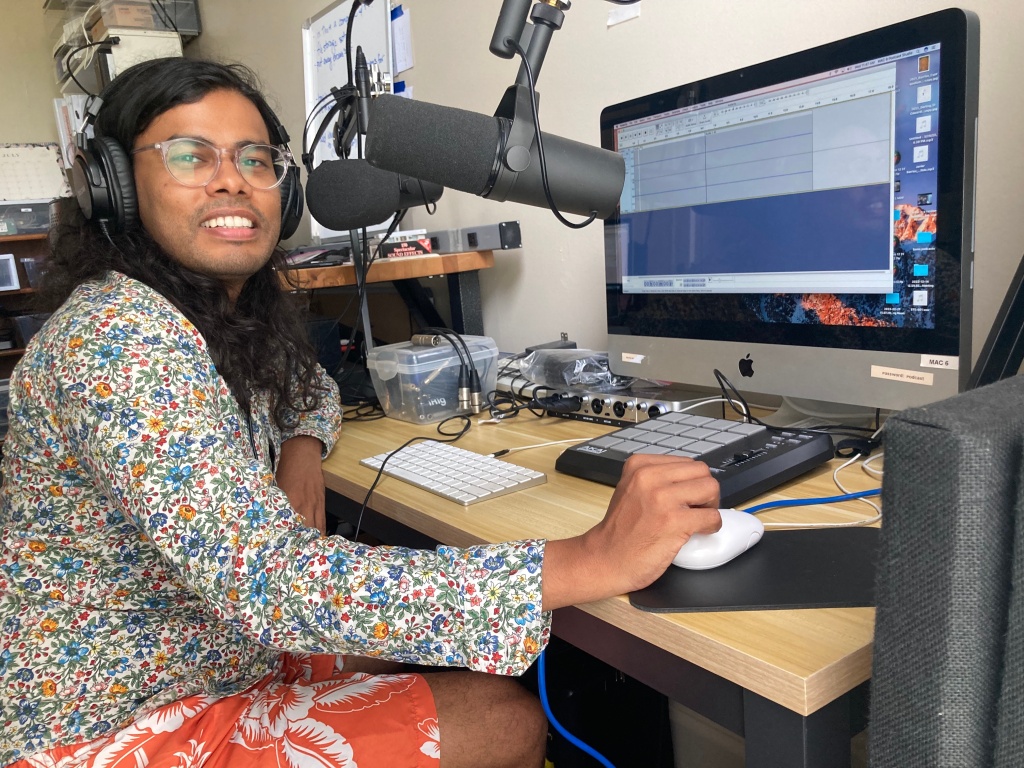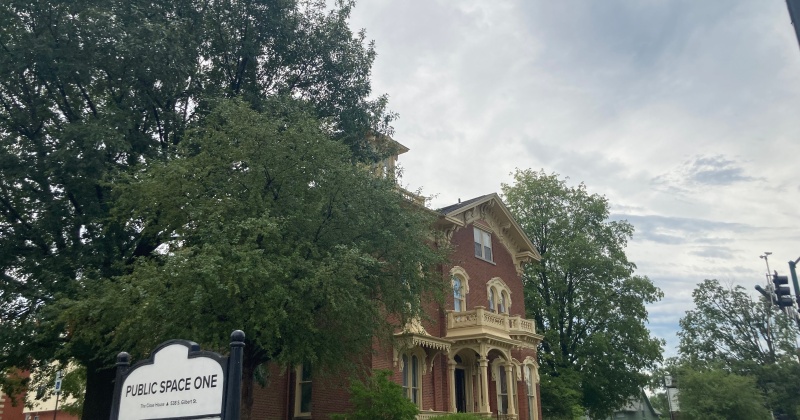By Rajorshi Das

The façade of the Close House is so imposing! That was my first thought when I saw this nineteenth-century building located on South Gilbert Street, Iowa City. However, working here this summer as an intern for Public Space One (PS1) has made me realize that appearances can be misleading. Places hold histories, but histories are made by people and their deeds. This building is now owned by PS1, a non-profit public arts organization that is led by the kindest and the most generous people I have come across in the city. Generosity defines the ways in which this organization serves the Iowa community, and I am specifically looking to dig into my experience as an activist-scholar to bolster that engagement by setting up a podcast studio and supporting it through grant writing.
Photo above: The display desk at the entrance of PS1, Close House
As a podcaster who routinely hosts artists and activists on, Queerness and Storytelling in India, I understand the importance of digital media in archiving and circulating stories that otherwise are not told or paid attention to. These engagements inform my research, which looks into the power of queer stories and how they are circulated in print and digital media. These stories are shaped not only by individual experiences but also collective identities across race, class, region, caste, gender, sexuality, and other factors. I believe that the power of telling our stories should be available to everyone, and community spaces like PS1 are part of a very important process of sharing that power. In fact, it is part of PS1’s mission to provide “an inclusive space for making and presenting art” and to provide “resources for artists and cultural educational opportunities” free of cost or on a pay-as-you-can model. This model is key to democratizing digital education and access.

The emphasis on access and education motivates the setting up of the podcast studio, which will allow community members to use our hardware and software to record their stories or dialogues. This studio is an extension of PS1’s commitment to carry forward the work of Public Access Television Inc (PATV), which was suspended and then integrated into PS1 in 2019. Since then, PS1 has focused on offering “public access to digital video, audio (podcasts), and web creation enabled through the current PATV studio and technology resources.”
Photo above: Das at the podcast studio
Because some the podcasting equipment is outdated, we are planning to apply for a few grants to update or replace it. Unlike my individual research writing, my work with PS1 is very collaborative, and I have been working closely with John Engelbrecht, Hannah Givler and Kalmia Strong. Sometimes, we work simultaneously on the same document, and this ensures flexibility in making some decisions. Similarly, the guidelines that I collated for future artist interviews are not a finished but a dynamic document that can be always updated.
At PS1, the power dynamics are more horizontal than vertical so that I have learnt to work with my mentors as peers or community members invested in equity and access. Though my research is not focused on the US, it advocates for similar strategies of mutual support and reciprocity across queer and trans communities in India to address the violence of caste system and racialization of ethnic and religious minorities. Without this understanding and sharing of labor, community formation is not possible. This is especially true at a time when liberal spaces of learning are being targeted for disseminating knowledge about social justice and inclusion. We can fight back with generosity and radical openness. These are creative ways of seeking change and PS1 is leading the way for the community in Iowa.

